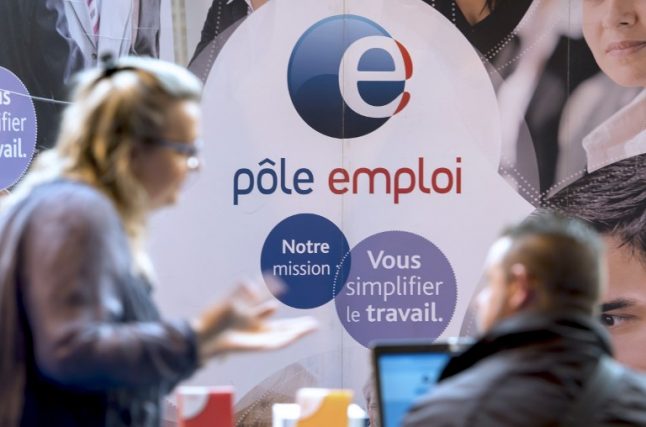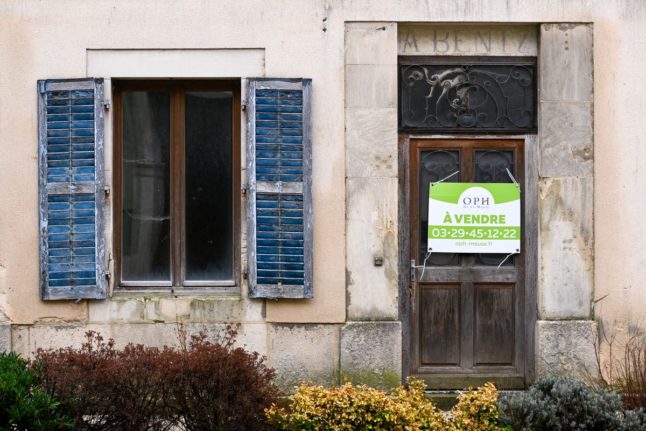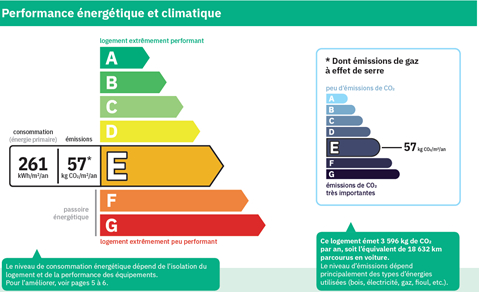Here is the journey through work life – from unemployment, to finding a job, enjoying the perks, then losing your job.
Emploi
Well, we may as well start easy. Emploi, as you may have guessed, means “employment”. French newspapers will often have their own “Emploi” sections if you want to read up on the latest employment news. Here is one from Le Figaro.
Pôle emploi
With employment comes unemployment, which typically leads people to France's national job centre – known as the Pôle emploi.
RSA – Revenue de solidarité active
This is France's basic form of job seekers allowance and you may be able to claim it while you look for work, although there are various and varied conditions.
CV
Yes, you'll need one of these in French. Don't be tempted to put resumé at the top. This is a pesky false friend.
 Photo: AFP
Photo: AFP
Entretien d'embauche
If your CV is good enough then it should lead to a job interview – an “entretien d'embauche” or just an entretien. Fingers crossed.
Contrat de travail
Got the job? Well done. Now you'd better sign your employment contract, known in France as a “contrat de travail”. This is a hugely important piece of paper, and is often needed when moving into a new house, applying for a bank account (or indeed a bank loan).
CDI
If you're lucky, the paper that you sign will be CDI contract, which stands for “Contrat à Durée Indeterminée” – or an open-ended contract. This essentially means you are a permanent employee. Well done.
CDD
The other (more likely) option is that you're on a CDD (Contrat à Durée Determinée), or a fixed-term contract. This is just a temporary gig, but can be extended, two or three times. It may eventually turn into a CDI if it works out well.
There are other types of job contracts on offer that depending on your line of work could see you end up a pigiste (shifter), an intermittent (occassional worker often employed in arts scene) or a saisonnier (a seasonal worker might do a ski season or wine harvest).
 Photo: VFS.com/Flickr
Photo: VFS.com/Flickr
SMIC
Time to talk pay. France's minimum wage, known as SMIC, is €9.67 as of 2016, or €1,466.62 a month.
Salariés
Employees. This is you.
Cadres
On the other end of the spectrum, you have the “cadres” – these are the managers, the executives. These lucky ones get better salaries and better social protection if they're made redundant. Although they will have paid more into the system so it's all fair.
Auto-entrepreneur
Another possibility is to run your own business, of course. There's minimal red tape (once you have set yourself up), no need to pay taxes or charges up front and many employers will welcome you with open arms as they avoid having to pay the steep charges that come with having a contract.
Ticket restos
Time to talk perks. “Tickets restos” or luncheon vouchers are mandatory in offices with no on-site cafeteria or self-service kitchen. Managers and workers split the cost 50/50, and employees end up with vouchers they can use in most supermarkets and restaurants around the country.
 Photo: AFP
Photo: AFP
RTT
Bosses must compensate you, in most jobs, for working more than 35 hours per week, and if you do so you should be entitled to RTT days (Réduction du Temps de Travail).
These are in addition to your usual paid holidays and are part of the reason why French workers are often able to take the whole of August off. In theory employers who don’t give you this time off should have to pay you overtime.
ITT
Injured? An ITT, which stands for Incapacité temporaire de travail (or “temporary work incapacity”), refers to how many paid days a doctor suggests you should take off after some kind of injury or trauma. The term crops up often in newspapers to describe how badly someone is injured “He got 45 days of ITT”.
 Photo: AFP
Photo: AFP
Treizième mois
Some businesses offer a “thirteenth month” of pay – an end-of-year bonus of sorts – often in a bid to boost staff retention.
Commité d'enterprise
This is a kind of council in some companies that offers you anything from cheap cinema tickets, holiday discounts and a nice wad of vouchers to spend at Christmas.
Impôts sur le revenue
Oh, the famous French taxman. No, it's not all laughter and perks in the French work place. Be ready for the income tax.
The graph below explains how much income tax you will pay depending on your earnings.

L'impôt à la source
France is set to get a simplified tax system this year which will see income tax taken automatically at source (à la source) rather than the following year after the individual annual declarations.
Fiche de paie
France's payslips are notoriously complicated. They can stretch to 40 lines of text of gobbldygook, but the good news is that they're working to make it simpler. Read more here.
 France is making life simpler for businesses, including making the payslips more readable. Photo: Screengrab BFMTV
France is making life simpler for businesses, including making the payslips more readable. Photo: Screengrab BFMTV
Mutuelle
This is a top up health insurance that, depending on the size of your company, is normally offered to you automatically. It basically means that your everyday health costs in France, like going to a doctor the huge the prescription they normally give you, will all be covered.
Métro, boulot, dodo
This phrase – literally “subway, work, and sleepy time” – is a great little phrase that means “The rat race”.
Basically, you're living to work. Perhaps time to make things interesting?
Augmentation de salaire
Not happy with your salary? Then why not ask for a pay rise, or an “augmentation de salaire”?
Licenciements
Hopefully you won't hear this word in your company, but if you do it spells bad news. It means lay offs or redundancies.
Rupture du contrat
Oops. Perhaps you weren't worth the pay raise, huh? Well, time to get started on the termination of your contract, or the “rupture du contrat”.
Rupture conventionelle
This is a termination of employment that is mutually agreed upon by employer and employee. Both parties can benefit from the arrangement, as the employer can escape labour law requirements while the employee can benefit from unemployment benefits.
You can be paid up to around €6,000 per month. The system was brought in to stop people from trying to get sacked just to get unemployment benefits.
Pot de départ
This is what you'll have if you leave on good terms. Pot de départ means leaving drink.

Chomeur
Now you're an unemployed person, you are known as a “chomeur”. Best read our top tips for being unemployed in France.

A Pôle Emploi in France. Photo: Jacques Demarthon/AFP
Chomage
And unemployment itself is known as “chomage”, which is also the term to refer to the benefits.
Allocations chômage
As long as you weren't sacked for gross negligence (faute lourde) then you're probably eligible for unemployment benefits, and in France, these are generally quite generous at up to 80 percent of your salary.
Time to start again with the whole process. Bon courage.
A version of this story was published in September 2016.




 Please whitelist us to continue reading.
Please whitelist us to continue reading.
Member comments